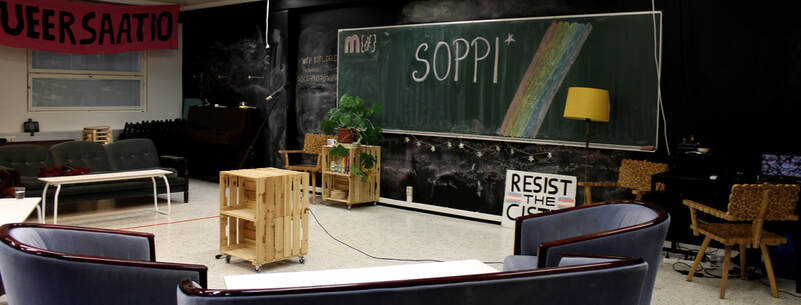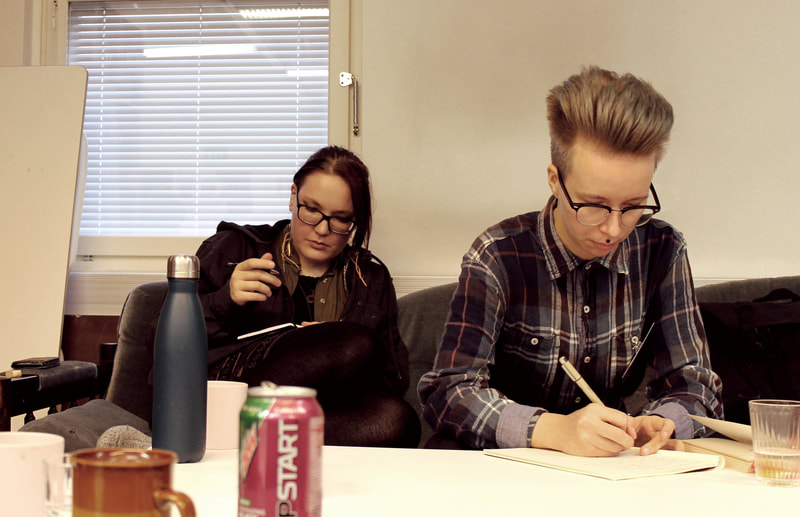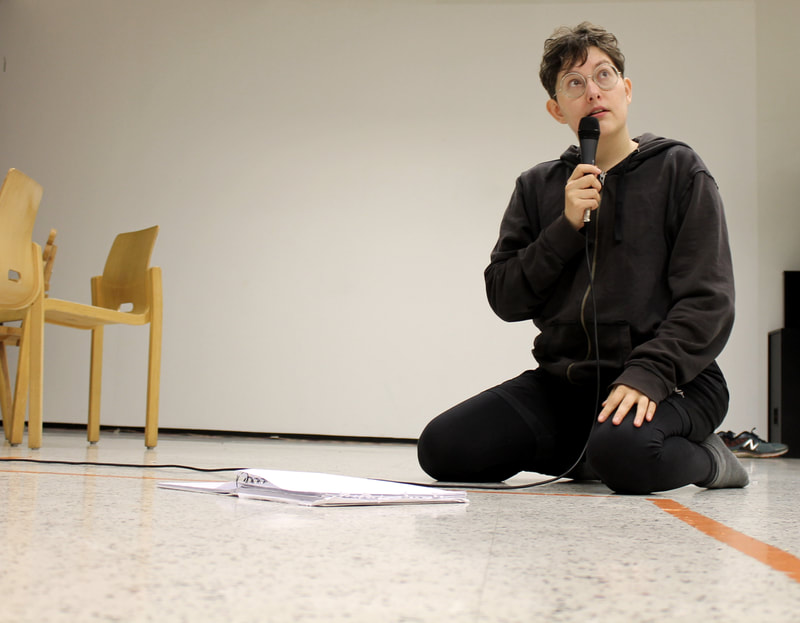Open Stage
design: Pihla Lehtinen (2019)
language: materials in Enlish, play in Finnish/English
participant spots: 15
Open Stage is a live action roleplaying game about queer voices, identities and communities. We tell a three day story about a small queer spoken word workshop and the everyday lives of it's participants and their friends.
Designed for lgbtq+ players, with a few spots open for allies. Materials use the word queer and the position this game takes is queer (as in this is queer art by a queer artist), but queer does not need to be a word all players or their characters use.
In Open Stage the players explore and narrate their own queer experience through fictional characters. This theme is described with a term ethnofiction and enables participants to have a deep ownership of the story.
What to expect
A five day event including:
- an intro meeting on wednesday evening
- play from thursday to saturday
- and a debrief hang out on sunday afternoon
You can control your amount of play-time. All of the scheduled play content happens on afternoons and evenings, but you can also play before and after those (for example have in game brunch). You don't have to be available all the time, meaning it's possible for example to participate only on evenings.
An in-game workshop where characters write and perform stand up comedy and poetry. Some characters participate in the workshop, some don't. Our last scene on saturday is a closing party of the workshop, where all characters are invited. Workshop-sessions are on thursday and friday afternoon.
A design giving you a lot of control over your character and play content. Made easy with pick and choose elements and other tools. Aim is to enable without reguiring a lot of effort, but more control does also mean more responsibility.
An atmosphere of safety and support both off-game and ingame. The characters may have complicated relationships but this is not a game about conflict. Our intense comes from intimate take on queer themes.
Ethnofiction
Etnofiction is a term borrowed from ethnoraphic filmmaking. It is a participatory style of documentary filmmaking, where the subjects of a the film design and act fictional scenes based on their own experiences. Idea being that the use of fiction enables a unique way of presenting/ideas/understanding that would be hard to acces otherwise.
Exploring elements of one's self through fictional character is not a new concept in larp culture. It is one of the most faschinating elements of larp as a form and can be especially important to queers and other minority folks. Open Stage makes enabling this a central design theme of the game.
Created with support from the Finnish Cultural Foundation
photography: Pihla Lehtinen



